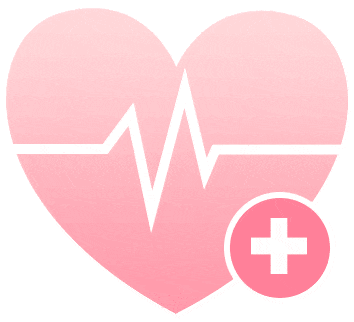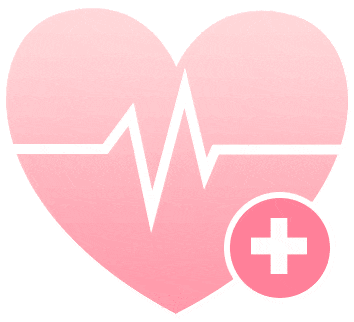The human constitution is divided into nine types: Pinghe Zhi (Balanced Constitution), Yang Xu Zhi (Yang Deficiency Constitution), Yin Xu Zhi (Yin Deficiency Constitution), Qi Xu Zhi (Qi Deficiency Constitution), Tan Shi Zhi (Phlegm-Damp Constitution), Shi Re Zhi (Damp-Heat Constitution), Xue Yu Zhi (Blood Stasis Constitution), Te Bing Zhi (Special Constitution), Qi Yu Zhi (Qi Stagnation Constitution).
To facilitate memory and usage, a “Song of Nine Constitutions” is recommended for friends.
《Song of Nine Constitutions》
Pinghe Qi is abundant, spirit is strong, diet and sleep are normal;
Qi Xu is fatigued and easily susceptible, speaks little, short of breath, and sweats a lot;
Yang Xu fears cold all over, wears thick clothes, and has a reclusive personality;
Yin Xu has dry eyes, lips, and skin, is thin, has red cheeks, and feels restless;
Tan Shi is overweight with a big belly, feels heavy, has a thick tongue coating, and snores easily;
Shi Re has oily skin, acne, bitter mouth, sticky stools, and yellow urine;
Xue Yu has dark complexion, lips, and tongue, forgetfulness, pain, and bruises;
Qi Yu is melancholic, easily tense, anxious, sighs, and has poor Qi flow;
Te Bing is prone to allergies, sneezes, coughs, and develops hives.
 1. Pinghe Zhi (Balanced Constitution)
1. Pinghe Zhi (Balanced Constitution)
-
Pinghe Qi is abundant, spirit is strong, diet and sleep are normal.
Common Diseases:
People with this constitution are generally not prone to illness.
Health Tips:
Maintain a balanced lifestyle, avoid overeating or undereating, and avoid extremes in temperature. Consume more whole grains, vegetables, and fruits, and less greasy and spicy foods. Young people can engage in running and ball games, while the elderly should take walks and practice Tai Chi.
2. Yang Xu Zhi (Yang Deficiency Constitution)
-
Yang Xu fears cold all over, wears thick clothes, and has a reclusive personality.
Common Diseases:
Prone to phlegm retention, swelling, diarrhea, and other conditions; easily affected by cold. For example, chronic diarrhea, edema, low blood pressure, infertility, dysmenorrhea, etc.
Health Tips:
It is recommended to eat more beef, lamb, eel, chili, and Sichuan pepper. Avoid raw and cold foods such as cucumber, lotus root, pear, and watermelon. Pay attention to warmth in autumn and winter, and consider sauna or hot spring baths. Ensure adequate sleep and avoid excessive fatigue.
3. Yin Xu Zhi (Yin Deficiency Constitution)
-
Yin Xu has dry eyes, lips, and skin, is thin, has red cheeks, and feels restless.
Common Diseases:
Prone to deficiency heat, insomnia, and other conditions; easily affected by heat. Symptoms may include sore throat, insomnia, irritability, tremors, and constipation.
Health Tips:
It is recommended to eat more cooling and moistening foods, such as lean pork, duck, mung beans, and winter melon. Avoid warming and drying foods like lamb, dog meat, leeks, and chili. Ensure a midday rest, avoid staying up late and intense exercise, and engage in activities like calligraphy, chess, and listening to soothing music.
4. Qi Xu Zhi (Qi Deficiency Constitution)
-
Qi Xu is fatigued and easily susceptible, speaks little, short of breath, and sweats a lot.
Common Diseases:
Prone to colds, low blood pressure, and organ prolapse (such as gastric prolapse, uterine prolapse, anal prolapse). Recovery after illness is slow.
Health Tips:
Eat more Qi-tonifying and spleen-strengthening foods, such as soybeans, white lentils, and chicken. Avoid excessive sweating exercises and avoid straining or holding breath. Regularly massage the Zusanli (ST36) point. Balance work and rest, and ensure sufficient sleep.
5. Tan Shi Zhi (Phlegm-Damp Constitution)
-
Tan Shi is overweight with a big belly, feels heavy, has a thick tongue coating, and snores easily.
Common Diseases:
Prone to metabolic disorders, hyperlipidemia, diabetes, hypertension, stroke, coronary heart disease, etc.
Health Tips:
It is recommended to have a light diet, avoiding fatty and sweet foods. Wear breathable clothing to disperse dampness, and sunbathe regularly. Maintain a consistent exercise routine.
6. Shi Re Zhi (Damp-Heat Constitution)
-
Shi Re has oily skin, acne, bitter mouth, sticky stools, and yellow urine.
Common Diseases:
Prone to sores, jaundice, and heat dysuria, such as acne, halitosis, eczema, damp scrotum, chronic prostatitis, etc.
Health Tips:
It is recommended to have a light diet, eating more cooling and neutral foods, such as mung beans, celery, cucumber, winter melon, lotus root, and watermelon. Increase exercise, and reduce outdoor activities during hot and humid seasons. Ensure a well-ventilated and dry living environment to prevent exacerbation of damp-heat.
7. Xue Yu Zhi (Blood Stasis Constitution)
-
Xue Yu has dark complexion, lips, and tongue, forgetfulness, pain, and bruises.
Common Diseases:
Prone to masses and pain syndromes, blood disorders, such as tumors and various cardiovascular diseases, stroke, hypertension, coronary heart disease, etc.
Health Tips:
It is recommended to eat more blood-activating foods, such as black beans, seaweed, radishes, vinegar, and green tea, and to avoid fatty pork. Engage in exercises that promote joint activity and ensure adequate sleep.
8. Qi Yu Zhi (Qi Stagnation Constitution)
-
Qi Yu is melancholic, easily tense, anxious, sighs, and has poor Qi flow.
Common Diseases:
Prone to organ restlessness, plum pit Qi, lily disease, and depression. Related to depression, insomnia, menopausal syndrome, and breast hyperplasia.
Health Tips:
It is recommended to eat more wheat, scallions, garlic, kelp, radishes, and hawthorn. Avoid drinking tea or coffee before bed. Engage in regular vigorous exercise, such as running, hiking, swimming, and martial arts.
9. Te Bing Zhi (Special Constitution)
-
Te Bing is prone to allergies, sneezes, coughs, and develops hives.
Common Diseases:
Prone to urticaria, asthma, rhinitis, Sjögren’s syndrome, drug allergies, etc.
Health Tips:
It is recommended to have a light and balanced diet, with a reasonable mix of meat and vegetables. Avoid foods containing allergens, such as buckwheat, fava beans, beef, goose, carp, and shellfish. Try to avoid allergens like pollen and dust mites in daily life.
 END
END
Source: Health China
*This article is for educational reference only and should not be used as a basis for diagnosis and treatment. Please consult a professional physician for specific guidance.
